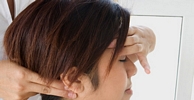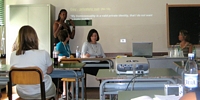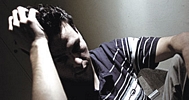|
|
 Acne (1,500) Acne (1,500)
 Addictions (1,500) Addictions (1,500)
 Advice (1,500) Advice (1,500)
 Allergies (1,092) Allergies (1,092)
 Alternative Medicine (1,500) Alternative Medicine (1,500)
 Anti Aging (1,500) Anti Aging (1,500)
 Breakup (1,500) Breakup (1,500)
 Cancer (1,499) Cancer (1,499)
 Dental Care (1,500) Dental Care (1,500)
 Disabilities (1,500) Disabilities (1,500)
 Divorce (1,500) Divorce (1,500)
 Elderly Care (1,498) Elderly Care (1,498)
 Goal Setting (1,500) Goal Setting (1,500)
 Hair Loss (1,500) Hair Loss (1,500)
 Health and Safety (1,497) Health and Safety (1,497)
 Hearing (1,500) Hearing (1,500)
 Law of Attraction (1,499) Law of Attraction (1,499)
 Marriage (1,500) Marriage (1,500)
 Medicine (1,497) Medicine (1,497)
 Meditation (1,499) Meditation (1,499)
 Men's Health (1,500) Men's Health (1,500)
 Mental Health (1,500) Mental Health (1,500)
 Motivational (1,500) Motivational (1,500)
 Nutrition (1,495) Nutrition (1,495)
 Personal Injury (1,499) Personal Injury (1,499)
 Plastic Surgeries (1,500) Plastic Surgeries (1,500)
 Pregnancy (1,496) Pregnancy (1,496)
 Psychology (1,500) Psychology (1,500)
 Public Speaking (1,500) Public Speaking (1,500)
 Quit Smoking (1,500) Quit Smoking (1,500)
 Religion (1,499) Religion (1,499)
 Self Help (1,500) Self Help (1,500)
 Skin Care (1,500) Skin Care (1,500)
 Sleep (1,500) Sleep (1,500)
 Stress Management (1,500) Stress Management (1,500)
 Teenagers (1,492) Teenagers (1,492)
 Time Management (1,500) Time Management (1,500)
 Weddings (1,500) Weddings (1,500)
 Wellness (1,500) Wellness (1,500)
 Women's Health (1,500) Women's Health (1,500)
 Women's Issues (1,500) Women's Issues (1,500)
|
The key verbal roots occur more than two dozen times each in the Koran.
Etiquette of Eating:
The host should offer water to wash the hands of his guests from the right to the left, washing his own last. When a man has guests with him, he should eat joyfully with them; he should be the last to begin to eat, and he should be the last to lave his hands before, and last to do so after, a meal (Kitab Majmu'at al-Hawashi, p. 59). When the host's relation are present at a meal, the host should wash his hands last, apart from the members of his own family (Daim al-Islam, p. 414)
The basmala (bismi'l-lah al-rahman al-rahim) should be recited at the commencement of a meal, and the hamdala (al-hamdu li'l-lah) at the end of it (Daim al-Islam, p. 390). One who gives thanks to God after taking a meal is compared to the man who fasts and is patient in suffering (Bukhari, 70:57).
According to Mukhtasar al-Athar by Qadi Noman, "Eating and drinking with the left hand was forbidden by the Prophet, who approved of the practice that all actions should be performed with the right hand."
It is not desirable to eat from the top or the centre of a plate (tharid); therefore, the proper code of manners is to eat from the side nearest to a man. And similarly, dates and fresh fruits and vegetables should be consumed from the sides of a dish (Daim al-Islam, p. 402). A man should not rise (qama'an) from a meal until it is over, that is until all have eaten their fill (Ibid., p. 407). There are no fixed prayers, short or long, prescribed at the end of a meal. But every man must necessarily praise the Lord, saying al-hamdu li'l-lah, and then pray, if he so wishes (Ibid., p. 408). The fingers should be washed at the end of a meal, for, this will complete the blessing of God (Ibid., p. 392).
The Prophet forbade the eating of food which was very hot (Ibid., p. 387). There is also nothing to show that taking food while sitting on a chair is forbidden, or that helping oneself with a spoon or a knife is disapproved of. On the contrary, the Prophet is spoken of as helping himself with a knife to cut cooked meat (Bukhari, 10:43).
According to Bihar al-Anwar, Imam Jafar Sadik said, "Do not eat food while it is too hot. Wash the fruit before eating it. Do not smell bread and do not rub your hands on it. Eat what is in front of you on the dinning table, and not from what is in front of others. Take small morsels and chew them well."
Eating and drinking in vessels of silver and gold was prohibited (Bukhari, 70:30), because it is a luxury, which can be enjoyed by the rich at the expense of the poor, and is against the democratic spirit of Islam.
Entertainment of guests is also emphasized (Abu Daud, 26:5). When the Prophet came to Medina, he sacrificed a camel or a cow to feast his friends (Ibid., 26:4). Inviting the followers of other religions, and accepting their invitation, is expressly spoken of in the Koran: "And the food of those who have been given the Book is lawful for you, and your food is lawful for them" (5:5). The Koran also speaks of eating together or separately as one likes: "It is no sin that you eat together or separately" (24:61). Hadith recommends social functions in which people should eat together: "Gather together at your meals, you will be blessed therein" (Ibid., 26:14).
The Prophet is also reported to have said: "Man has filled no worse vessel than the stomach. A few morsels are enough for the son of Adam. Nonetheless, if it required to eat more than it, one third he should fill one third of it with food, one third he should keep for water and one third for breathing" (Tirmizi, 2:50).
Etiquette of Drinking:
The name of God should be uttered before drinking; and the Lord should be praised at the end (Daim al-Islam, p. 447). Imam Jafar Sadik used to drink standing as well as sitting (Ibid., p. 449). Ali bin Abu Talib drank water while standing, and added that people did not like it but he had seen the Prophet drinking water while standing (Bukhari, 74:15).
Water should be sipped and taken slowly (massa), and not gulped down in haste (abba) (Ibid., p. 452). According to Bihar al-Anwar, Imam Jafar Sadik said, "Cold water lessens temperature, cures vomiting, digests food and is an antidote for heat. Besides, water is good for all types of pains and is not harmful in any way."
It is related by Imam al-Muizz that his father, Imam al-Mansur, was present at a feast provided by Imam al-Mahdi. One of the boys eating with others was offered drinking water, without his asking for it. He refused it and Imam al-Mahdi was greatly enraged at the servant, and said that, "Water possesses such excellence that it should never be offered without being asked for; and it should never be refused when offered to any person."
Milk should always be swallowed quickly (abba) and not drunk slowly (yatjarra'u). (Ibid., p. 455)
Etiquette of Clothing:
No limitations are placed upon the form or quality of clothing, either in the Koran or hadith. The Prophet is reported to have said, "Eat and drink and wear clothes and be charitable, not being extravagant or self-conceited" (Bukhari, 77:1). Ibn Abbas said: "Eat what you like and wear what you like, so long as you avoid two things, extravagance and vanity" (Ibid.) Thus, Islam requires no particular dress. A man may choose what he eats and what he wears. The only thing required is that the clothes should be clean and good (Abu Daud., 31:13)
Once on the occasion of pilgrimage, a certain Abbad al-Basri plucked at the gown (jadhaba bitaraf) of Imam Jafar Sadik, and said, "Ya Abu Abdullah, darest thou dress in such raiment in a place (so sacrosanct) as this? In this sacred house thine is the station of Ali himself, and thou surely knowest what raiment he wore?" The Imam exclaimed, "Woe to thee, O Abbad! Ali's habit befitted his times. If I were to wear what Ali wore, people would say:
|
|
|



